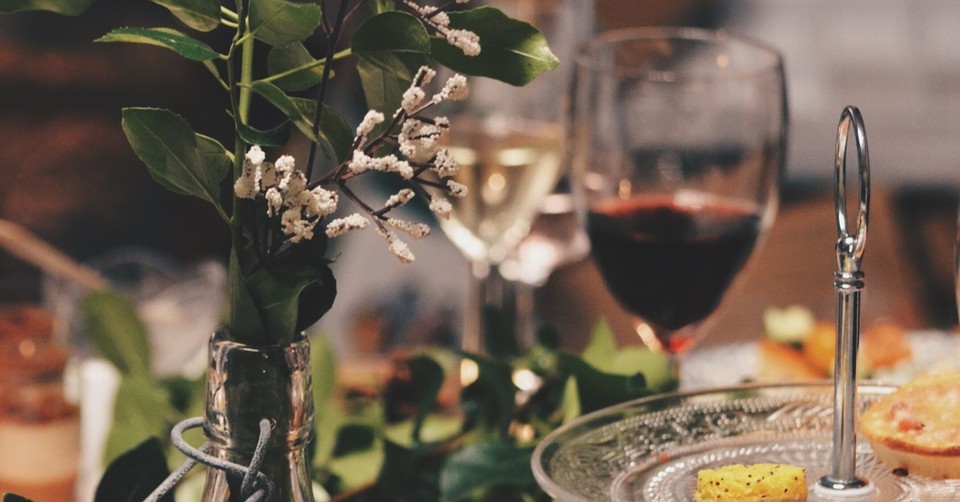Why Did Daniel Refuse the King’s Food?

In the book of Daniel, Daniel and his three friends, who are taken into exile, are given food from the king’s table and trained in all of the ways of Babylon. For three years, Daniel and his friends would have been immersed in Babylonian culture. They have been ripped from their homeland, taken from the Promised Land, distanced from the temple, and thrust into a foreign land. How would they respond?
It’s important to keep in mind as well what Jeremiah the prophet said to these exiles. In Jeremiah 29:4-7, the prophet charged those going into exile with these words:
This is what the Lord Almighty, the God of Israel, says to all those I carried into exile from Jerusalem to Babylon: “Build houses and settle down; plant gardens and eat what they produce. Marry and have sons and daughters; find wives for your sons and give your daughters in marriage, so that they too may have sons and daughters. Increase in number there; do not decrease. Also, seek the peace and prosperity of the city to which I have carried you into exile. Pray to the Lord for it, because if it prospers, you too will prosper.
Fitting into the culture of Babylon is, in part, what faithfulness would look like. But certainly, there would be lines that shouldn’t be crossed. It’s interesting to think of all they would have encountered in these three years. What would be required of them to fit in with Babylonian culture?
What Would it Take for Daniel to Fit In?
First, they would have to learn a new language. They believed Hebrew to be a sacred language. It would be tossed aside, and they’d have to learn Aramaic and Akkadian. There is no indication that Daniel and his friends balked at this request.
Secondly, they would have plunged into the depths of Babylonian literature. They’d have read all the Babylonian accounts of creation, they’d have to learn a different flood story, and at each point of history, other gods would be given credit. YHWH, their God, would be entirely forgotten and replaced with the false gods of Babylon. Once again, Daniel not only took the classes, he excelled in them.
Speaking of classes, one of those that he’d be taking involved learning divination. Daniel would have learned all that the Babylonians had compiled on fortune-telling. Part of this would be learning how to read the will of the gods by discerning the internal organs of sheep. They would have studied the stars, engaged in astrology, and discovered how to interpret dreams.
It’s important to know that divination is strictly forbidden in the Old Testament. God’s not cool with fortune-telling. Leviticus 19:26 and 20:6 are pretty explicit in their condemnation of this practice. And yet we read nothing of their objections. Rather than refusing the assignment, it seems that Daniel and his friends rose to the top of their class. Daniel could read a sheep liver with the best of them. They, surprisingly, didn’t draw a line in the sand here.
Even their names were changed to reflect their new status as Babylonians. A name meant something then too. It was a symbol of who you were. Often their names, like Daniel, carried with it a meaning like “God is my judge.” But the Babylonians switched them to pay homage to their deity. Daniel became Belteshazzar, which means “the divine lady protects the king.” All indications are that when one of the Babylonian leaders shouted Belteshazzar, the artist formerly known as Daniel would have turned his head in acknowledgment.
These are significant issues, and yet it seems that none of these young men lodged a protest. Until…
Why Daniel Refused Food
The one place where they refused to acquiesce was in regard to the king’s food and wine. Why are they drawing a line here?
Some have theorized that it is because the food would have been forbidden according to Levitical law. Their diet would have been filled with unclean meats. It’s possible that this is the reason, but why learn astrology? And why abstain from the wine? And it seems from Daniel 10:3 that at some point, he did eat Babylonian food.
Does it have to do with idolatry? Are they simply not wanting to offer food offered up to idols? Perhaps, but again this is sketchy because the Babylonians would have offered up all of their food to the gods, even the veggies that they did eat. No, it seems that something else is taking place.
Perhaps this is a type of boycott. Here, I think, we are getting a bit closer to the truth. They are letting the king know that they will not be co-opted, they won’t fold, and they won’t fully become immersed in Babylonian society. While I think there is some hint of truth there, all indications are that this “boycott” is private. Only one other person will know about this. It has none of the makings of a protest.
Personally, I think it has more to do with Proverbs 21:1-3 (which Daniel would have known) than anything else.
When you sit down to eat with a ruler,
observe carefully what is before you,
and put a knife to your throat
if you are given to appetite.
Do not desire his delicacies,
for they are deceptive food. (ESV)
Nebuchadnezzar’s food was deceptive food. What does that mean? It means that it came with strings attached. Taking the king's food would have created a dependency. At the end of the three-year period, they’d have been fully Babylonian and dependent upon the king for everything. And it wouldn’t have happened primarily through punishment but through pleasure. It’s a combination of threat and promise. It’d take away memory and identity of belonging to God and instill in them an absolute dependency on Nebuchadnezzar and the Babylonian Empire for everything.
So, why did they refuse the food?
It’s because this was the one place where they could draw a line in the sand and say, “No, we will depend upon YHWH.” It’s where they could sever that tie and remind themselves and others and eventually show even the Babylonians that YHWH was the one to whom all humanity can (and should) depend.
How Did They Survive?
Daniel asked the chief eunuch (this would be like a schoolmaster of sorts) if they could eat only vegetables. At first, their request was denied. They’d look like poor miserable creatures if they rejected the king’s food, and this would look bad on him. There is no way that he was putting himself in danger of drawing the ire of the powerful king.
They asked for ten days. Just experiment. We’ll look healthier and be in better shape than all those eating at the king’s table. Request granted.
Now, it’s at this point that I think most of us are tempted to impose a Western standard of beauty and strength onto this text. We read this as if the point is something like, “God’s ways are better than the ways of Babylon.” While that’s a true point—that’s not the point of the text here.
Yes, it’s true that eating vegetables and such would be healthier than the fatty foods of Babylon. But that’s making an assumption. We’re assuming that Nebuchadnezzar wanted his wise men and eunuchs to be muscular and fit. That might have been true for the warrior class, but looking better in appearance for a “wise man” would have been much different. As Tremper Longman III notes, “…wise men (like Daniel and his colleagues) are pictured as bald, big-eyed (a symbol of intelligence), and chubby. That is the look that Nebuchadnezzar was going for” (How to Read Daniel, pg. 60).
The miracle here (as verse 15 clues us in to) is that Daniel and his friends were “fatter in the flesh” than his peers. That shouldn’t have happened, but it did because God was providing for Daniel and his friends. They kept their dependence upon God while they became fully entrenched in Babylonian culture. And because they were dependent upon Him, God helped them to excel within that culture. He gave them the ability to excel in Babylon but also to shine forth in Babylon.
Sources:
Tremper Longman III, How to Read Daniel, How to Read Series (Downers Grove, IL: IVP Academic: An Imprint of InterVarsity Press, 2020), 60.
Photo Credit: ©Unsplash/Caroline Hernandez
Mike Leake is husband to Nikki and father to Isaiah and Hannah. He is also the lead pastor at Calvary of Neosho, MO. Mike is the author of Torn to Heal and Jesus Is All You Need. His writing home is https://mikeleake.net and you can connect with him on Twitter @mikeleake. Mike has a new writing project at Proverbs4Today.
Originally published May 17, 2023.





